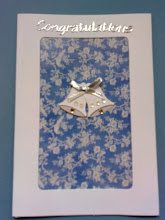I had been meaning for a long time to learn more about my family especially having grown up with the colourful stories told by my mum and gran. I did think it was an impossible task though. Traditional societies often don’t keep accurate records and my family’s history has been recorded verbally by a travelling record-keeper who has now passed away. There is something similar in the book Roots by Alex Haley, where on his return to Africa a griot (repository of oral tradition) recites the family tree of Haley’s ancestor’s all the way back to Kunta Kinte. Reading this scene with our Punjabi tradition in mind sent a shiver down my spine.
I didn’t have high hopes then of putting together a traditional English-type family tree like one created by a colleague who traced his unusual name back to the Domesday Book and found family as far as Canada and Australia. I sat down with her on a Saturday afternoon pen and paper in hand and asked her “Gran who are we? Where did our people come from?” The answers stunned me. She took me back seven generations to the people who travelled across the Punjab and settled in our beautiful little corner of it, through plague, drought, colonialism and partition. She told me about caste and the relationships between people of different religions (she used to get sweets from the Hindu girls on Diwali and Sikh girls on Visakhi, she used to give them flowers and fruit on Eid on the other hand my grandfather worked in a Sikh household and was considered untouchable as a Muslim and not allowed near food or the kitchen). She told me about my grandfathers service in Burma during World War Two and how she traded his medals in as scrap metal to a travelling Pathan (Pukhtoon).
I cried with her when she told me how she lost a brother and sister to Typhoid in childhood and could still remember how pretty they were, she also told me how her father lost his parents and four siblings as a ten-year old to the plague that swept the Punjab in the nineteenth century and how he was raised by a sole living uncle and became the father to a great big family. She cried for the kindness and family ties that she says don’t exist anymore (although I promise myself I wont let them break yet) and then smiled as she told me about the coming of the children and grandchildren and the women that survived childbirth (not always the case in her time).
I couldn’t believe some of the stories about murder, land, war, politics, drugs, saints, jinn and general mischief she told me (so that’s where my little ones get it!). She also knew my husband’s grandfather – so I got the low-down on my in-laws too. She told me about the family’s book of records (shajrah –e-nasb) which I might be able to find on my next trip eastwards and the few old people who still might know our stories.
And then there were the stories of migration and hardship in a foreign place. Of a new home and leaving their children behind and going back home one by one.
It was the strangest feeling after a lifetime of feeling so rootless and not really belonging anywhere. It felt as if she had taken me and rooted me into the earth, I felt like my children and myself were part of something so much bigger – what a story!

"Whoever believes in Allah and the Last Day, let him maintain the bonds of kinship" (Bukhari)
'Would you then, if you were given the authority, do mischief in the land and sever your ties of kinship?' (Al-Quran 47.22)
Narrated 'Aisha: (the wife of the Prophet) The Prophet said, "The word 'Ar-Rahm' (womb) derives its name from 'Ar-Rahman' (i.e. Allah). So whosoever keeps good relations with it (womb i.e. Kith and kin), Allah will keep good relations with him, and whosoever will sever it (i.e. severs his bonds of Kith and kin) Allah too will sever His relations with him. (Bukari 73:18)































Wow, that was probably one of your best entries so far so thought i would comment. made me think that in away we live an isolated life in a whole different world not knowing very much about our past and what kind of a way they lived back then, makes you wonder what is was like for grandma and her older generations. Make a family tree, find out more stories and lets pass it on so it wont be forgotten.
ReplyDeleteAnonymous was me btw.. wouldn't let me post it otherwise (Jowayria-your fave sis :O)
ReplyDeleteI think it's great that someone can tell you about your history, it must be so interseting to know that there was so much more in your history than you realised.
ReplyDeleteInshalla you will find more of what you are looking for